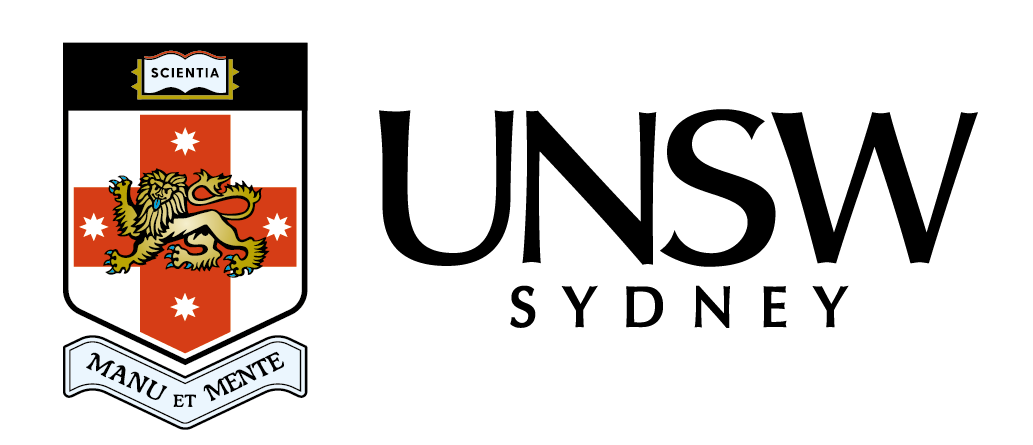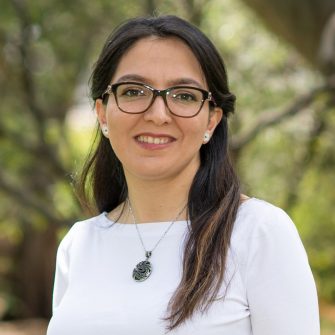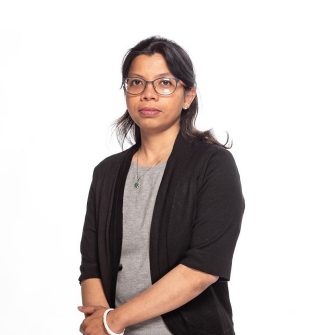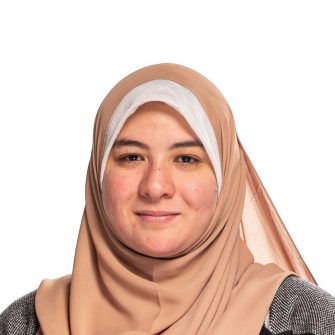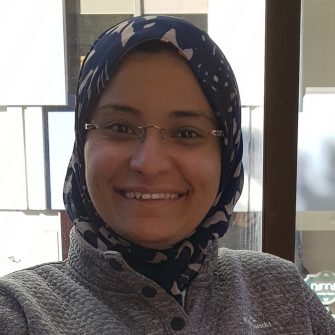

Date
14 - 15th September

Duration
2 Days

Venue
Virtual Conference
Overview
The world has changed and we need to adapt to these changes to be future-ready. The unprecedented COVID-19 pandemic, severe extreme climate conditions, economic and political disruptions and financial recession illustrated the risks of living in an optimised world. Adaptive and holistic problem-solving approaches are most needed to tackle the complexities and uncertainty of the problems we face.
The Capability Systems Centre runs this two-day conference with the subject “Co-design the future through modelling”. A virtual day-long conference convenes on 14 September 2021 and a half-day series of workshop and tutorials occurs on 15 September 2021. The day-long virtual conference on September 14th features showcases on the use of co-design the future through modelling in a wide range of areas. The event provides a platform for researchers and practitioners to communicate about scientific and practical aspects of real-world problems, receive feedback, and share learning lessons. It also provides a unique networking opportunity among people from academia, industry and government for initiating future collaborations. We believe that this free virtual conference is an opportunity to create an inclusive event in which everyone around the world can attend and make contribution.
We look forward to welcoming you to the virtual SMC2021 in September.
Reset, Ready, Go: Co-design the future through modelling
A holistic understanding of the challenges of complex and strategic decision making is needed to avoid sub-optimisation and bounded decision making. To deal with these challenges, we need to liberate ourselves from conventional ways of thinking focused around narrowly defined problems and fixed modelling approaches. We need to reflect on the state of art in modelling and use the current knowledge to co-design the future of modelling.
In the spirit of this theme, SMC 2021 conference is aimed to facilitate a critical discussion and exchange of knowledge on model-based policy development by asking how we can use models to co-design the future. SMC 2021 conference provides an opportunity to present your research, meet the key figures of the field and create network.
SMC 2021 conference provides an opportunity to Reset: look back at prior models and their evolution in terms of global problems Ready: to tackle uncertain situations by providing best solutions, and Go: to build/design future models/next generation of models.
Conference Recording
If you were unable to make the conference this year, please enjoy this recording.
Conference Proceedings
The conference proceedings are now available - download the pdf or view on the IEEE website.
General Information
Submission Method
Authors are requested to submit their papers electronically using the Electronic Submission System in PDF format before the deadline.
Note: To submit a paper you need to have an EasyChair account. Follow the link EasyChair Signup to create EasyChair account, if needed.
Submission Type
1. Full Paper (Presentation and Publication)
Authors are invited to submit full text papers including results, tables, figures and references. Full text papers will be accepted by Electronic Submission System. All submitted articles should report original, previously unpublished research results, experimental or theoretical. Articles submitted to the Conference should meet these criteria and must not be under consideration for publication elsewhere.
Decisions will be communicated to authors by 10 August 2021. Manuscripts should follow the style of the Conference and are subject to both review and editing. Accepted papers will be submitted for inclusion into IEEE Xplore.
Authors of accepted papers are required to have registered by 30 August 2021.
2. Extended Abstract (Presentation Only)
Accepted abstract will be invited to give the presentation at the conference, the abstract will not be published. Extended abstracts (max 500 words) should be submitted by 15 August 2021 through the Electronic Submission System. Extended abstracts should describe the key research questions, theory, method and findings and references.
Guidelines
Papers must be prepared using the following templates:
- Full paper up to 6 pages
- MS Word Users
- LaTex Users
- Extended Abstract
For more information, visit IEEE Manuscript Templates for Conference Proceedings.
Key Dates
- Full Papers
- Extended Abstracts
- Workshops
Submission Systems Opens | 1 June 2021 |
| Submission deadline for full papers | 30 July 2021 |
| Review notifications for full papers | 10 Aug 2021 |
| Final submission of revised full papers | 25 August 2021 |
Conference date | 14 September 2021 |
| Submission Systems Opens | 1 June 2021 |
| Submission deadline | 15 August 2021 |
| Review notifications | 30 August 2021 |
| Conference date | 14 September 2021 |
Workshop date | Due to the uncertainties of the COVID environment, the Capability Demonstration Workshop and User Group has been postponed until the week 15-19 November. A date will be confirmed in due course. |
Keynote Speakers
Dr Robert Lempert
Robert Lempert is a principal researcher at the RAND Corporation and Director of the RAND Frederick S. Pardee Center for Longer Range Global Policy and the Future Human Condition. His research focuses on risk management and decision-making under conditions of deep uncertainty. Dr. Lempert is a convening lead author for Working Group II of the United Nation’s Intergovernmental Panel on Climate Change (IPCC) Sixth Assessment Report, was a chapter lead for the Fourth US National Climate Assessment, is a member of Harvard’s SCoPEx geo-engineering advisory panel, and was a member of California’s Climate-Safe Infrastructure Working Group. Dr. Lempert is the inaugural president of the Society for Decision Making Under Deep Uncertainty (www.deepuncertainty.org), a Fellow of the American Physical Society, and a member of the Council on Foreign Relations. A Professor of Policy Analysis in the Pardee RAND Graduate School, Dr. Lempert is an author of the book Shaping the Next One Hundred Years: New Methods for Quantitative, Longer-Term Policy Analysis.
Professor Debi Ashenden
Prof Debi Ashenden, University of Adelaide. She holds the DSTG Group- University of Adelaide joint chair on cyber security. She has vast experience in transdisciplinary problem solving approaches for complex problems, which will make her talk appealing to the broader modsim audience. She has had a number of articles on cyber security published, presented at a range of conferences and co-authored a book on 'Risk Management for Computer Security: Protecting Your Network & Information Assets'.
Program
- Tue 14 Sep
- Wed 15 Sep
Workshop/Tutorial | Title | Time |
Workshop (F*) | Capability Modelling Demonstration and User Group (2 part session) Speaker: Opening Remarks by Vice Admiral (Retired) and Professor Paul Maddison, Director UNSW Defence Research Institute (DRI) and the Capability Systems Centre Team | Due to the uncertainties of the COVID environment, the Capability Demonstration Workshop and User Group has been postponed until the week 15-19 November. A date will be confirmed in due course. |
Tutorial 1 (V*) | Product Evolution: How a new type of product emerges on the market Speaker: Dr. Sumana Biswas | 11:10 – 12:10pm |
Tutorial 2 (V*) | The Supply Chain and System Thinking Speaker: Dr. Mohammad Humyun Fuad Rahman | 1-2pm |
Tutorial 3 (V*) | Participatory Modelling to Address Complex Problems Speaker: Dr. Fateme Zare | 2:10 – 2:50pm |
*F - Face to face Lecture theatre SR03/B32 UNSW Canberra
*V - Virtual via Zoom
Workshop/Tutorial Details
Workshop : Capability Modelling Demonstration and User Group (2 part session)
Speaker : Opening Remarks by Vice Admiral (Retired) and Professor Paul Maddison, Director UNSW Defence Research Institute (DRI) and the Capability Systems Centre Team
Description: Part 1 of this session will be opened by Director UNSW Defence Research Institute (UNSW DRI) and focus on a UNSW Capability Systems Centre overview and demonstration on the use of systems thinking and modelling for strategy development and evidence-based decision making in complex Defence (military) capability development scenarios and asset planning. The simulation model demonstration will outline examples of innovative applications of systems thinking and modelling in support of capability and program sponsors, project teams and acquisition and sustainment organisations. The forum will transition to a ‘modelling user-group’ (Part 2) for current CSC developed model business owners and users to allow shared experiences, knowledge transfer, feedback and innovative thinking on how existing models can be adapted and improved to meet changing requirements.
N.B. This workshop is not open to the public but focused around Defence Users and/or prospective Defence Users. Part 1 (60 min duration) will be followed by a 15min morning tea and ‘networking’ before commencing Part 2 (45 min duration). If you are interested in the workshop, please send us an email.
Tutorial 1 : Product Evolution: How a new type of products emerges to the market
Speaker : Dr. Sumana Biswas
Description: This spotlight tutorial will address the emerging areas, techniques, methodology and perspectives in Product Evolution.
The objective of the tutorial is to introduce Product Family Evolution and discuss its importance in the field of product management.
Products continuously evolve over time. Realizing the pattern of product family evolution along with proper estimation of features for future products has been regarded as a critical issue for business success. This tutorial aims at providing the audience with an overview of product evolution / product family evolution by analysing the existing approaches and discussing a new method, describing its application in an existing product. The tutorial will also focus on the impact of evolution and challenges related to product evolution.
Outline: This tutorial will be organized as follows:
- Introduction
- Why do Products Evolve?
- Evolution Diagram/graph
- Impact of Evolution
- Challenges in Product Evolution
Prerequisite: As part of the tutorial, attendees will be asked to participate in survey to express their opinion
Tutorial 2 : The Supply Chain and System Thinking
Speaker : Dr. Mohammad Humyun Fuad Rahman
Description: Supply chains drive our daily life and the economy of a country. Modern SC chains are the complex network, which combines man, machines, machines, process, to ensure the smooth of materials and information to achieve desired outcomes (e.g., profit, sustainability). To achieve such goals, everyday SC managers are challenged in decision making. This decision-making are critical since each component of the SC is either work together (or does not work together) to achieve the goals. Thus, decision-making concerning a specific area of SC may not ensure optimized decision-making in SC. To tackle this challenge, system thinking plays a key role in SC decision making that looks at decision making not as isolated challenges but rather in the context of the larger system in which a particular function or process operates in the SC environment. Many good companies, such as Apple, Ford, Intel, Dell, Proctor & Gamble, McDonald’s, Amazon, Unilever, and more are well-known examples of managing SCs using the system thinking tool. Considering this aspect, this tutorial will discuss how decision-making in SC can be managed through a system thinking process.
Tutorial 3 : Participatory Modelling to Address Complex Problems
Speaker : Dr. Fateme Zare
Description: Despite advances in decision support modelling, there remains a distinct gap between its scientific achievement and practical achievements in supporting decision-makers. This issue is severe in addressing complex issues. A complex "problem-solving" process includes integrating various concerns from different stakeholders and using different disciplinary knowledge (Laniak et al., 2013). Therefore, it is necessary to have a shared and clear definition of the "problem", the modelling process and its goal, between different experts, stakeholders and decision makers.
This workshop aims to
- introduces the tools and methods to reach a shared understanding of the problem between modellers, decision makers and other stakeholders,
- to construct customised modelling project steps which fit our purpose.
The following tools and ideas will be discussed
- DPSIR framework
- Pathway Diagram
- ID card
- Customised guideline
As a result of using these tools, decision makers will be more involved in the modelling process and the final product are more trustable and useful for them.
Organising Committee
Our Partners
Contact Us
For information or assistance on the 5th Annual Systems Modelling Conference 2021 Canberra please contact:
SMC Organising Committee
Email: smc2021-0@easychair.org or capabilitysystems@adfa.edu.au
